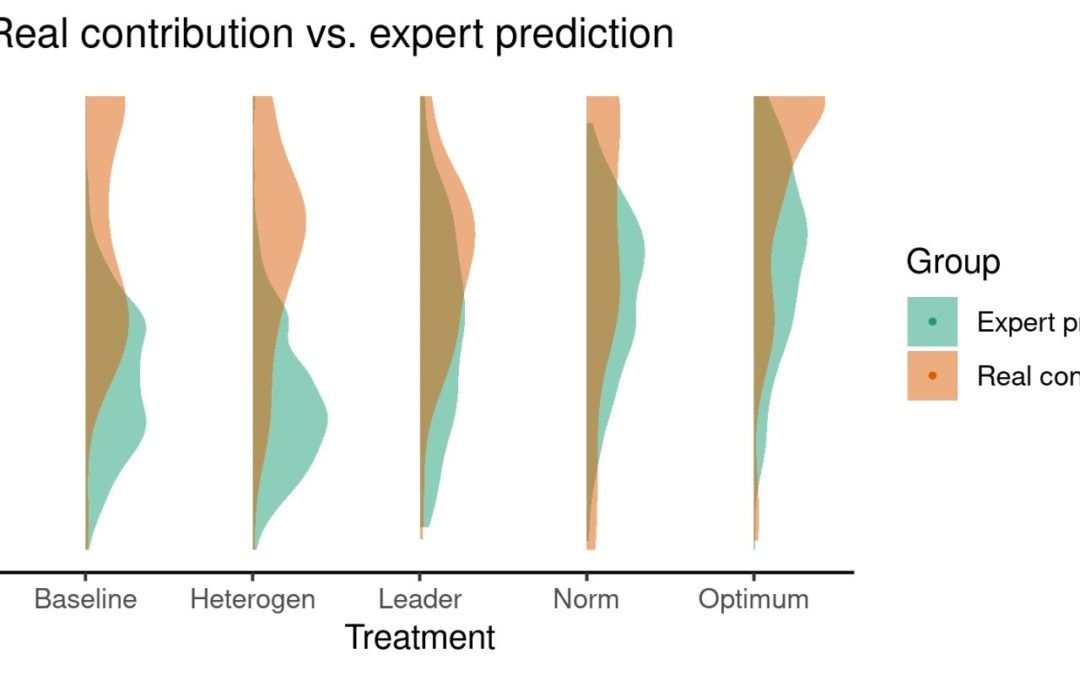In the Netherlands the coordinationdescribes farmers working towards a shared goal, but without personal interaction. The alignment of actions toward the shared goal is achieved by an entity that coordinates the activities. Belongs to the range of collective approa... More of agri-environmental schemes (AES)usually comprise several agri-environment-climate measures (AECM). Synonym: Agri-environment-climate schemes See also: Agri-environment-climate measures (AECM), Payments for Ecosystem Services (PES) More is organized exclusively through 40 collectives across the country. Other EU-member states show great interest in this model. However, little is known about farmers’ willingness to cooperate. Therefore, to shed light on this issue, Contracts2.0 carried out a field experiment with 300 German farmers. So far, preliminary results suggest that farmers are more likely to cooperate than expected.
To study the dynamics between self-interest and cooperation among farmers, public goods gamesare a widely applied economic experiments. In a public goods game, a group of people is endowed with resources which they can either place in a private or a joint account (public good). In a standard linear voluntary contributions... More were used. Here, farmers received a sum of money to split between a private and a group account. Giving money into the group account is in the collective interest but at odds with individual interests, on the other hand. Pinpointing the optimal social solution did lead to the largest monetary contribution to the group account even though experts predicted differently (see figure).
So far, the public goods gamesare a widely applied economic experiments. In a public goods game, a group of people is endowed with resources which they can either place in a private or a joint account (public good). In a standard linear voluntary contributions... More have presented itself as extremely useful. Researchers and policy makers can easily draw on this application-friendly analytical tool for understanding collaborative behavior. Concrete field implementation as well as results will follow in the coming weeks.


